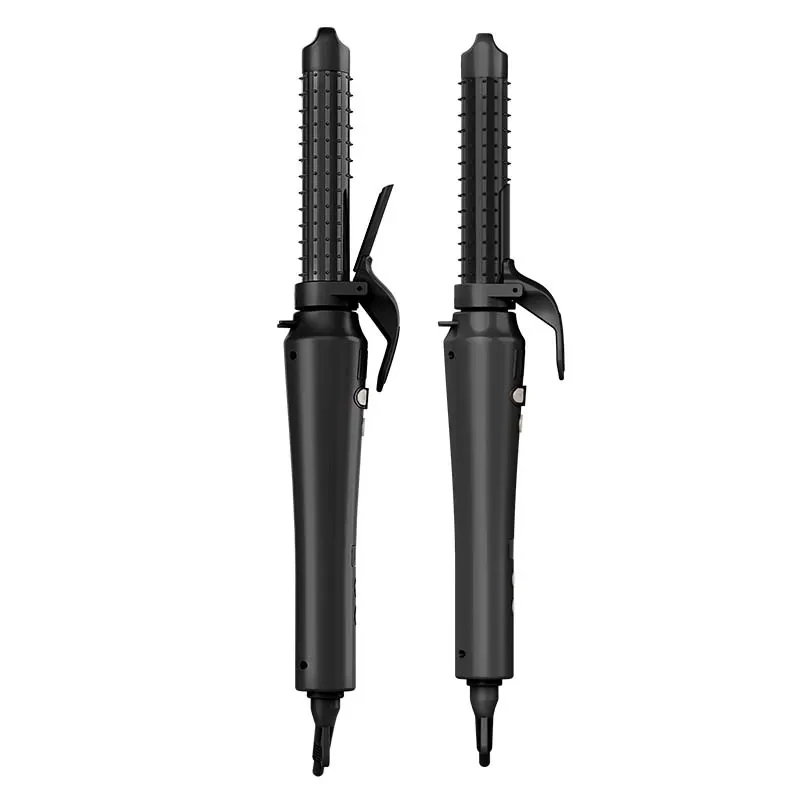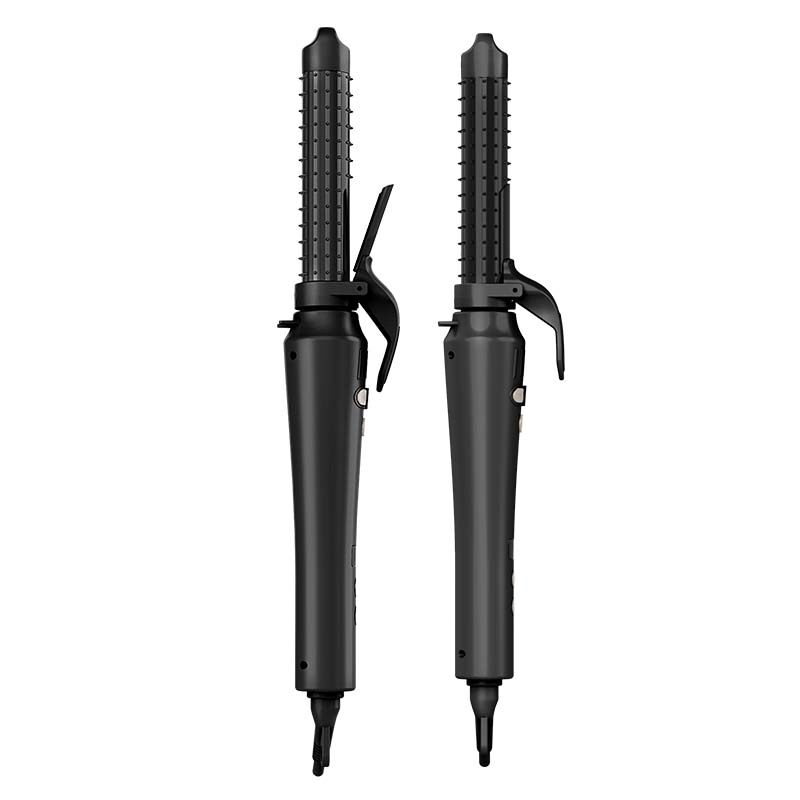Email cannot be empty
Password cannot be empty
Email format error
Email cannot be empty
Email already exists
6-20 characters(letters plus numbers only)
The password is inconsistent
Email format error
Email cannot be empty
Email does not exist
6-20 characters(letters plus numbers only)
The password is inconsistent

The beauty of Black women is unmatched, celebrated for its richness, diversity, and deep cultural roots. One of the many aspects that make Black beauty so unique is the variety of hairstyles that can be achieved, each telling a story of heritage, creativity, and personal expression. Central to this narrative is the use of rollers and hair curlers, which have been integral tools in Black hair care for generations.
To understand the importance of rollers and hair curlers in Black culture, it's crucial to delve into the history of Black hair. For centuries, hair has been a powerful symbol within African and African American communities. In many African cultures, intricate braids, twists, and other styles were not just about aesthetics—they carried meanings, signifying social status, tribe, age, and even marital status. The transatlantic slave trade disrupted these traditions, yet African Americans preserved their connection to their heritage through hair.
During the early 20th century, Black women faced immense pressure to conform to Eurocentric beauty standards, leading many to straighten their hair. Despite this, many women continued to celebrate their natural textures, using various methods, including rollers and hair curlers, to style their hair in ways that honored their heritage while also adapting to the world around them.
For Black women, rollers and hair curlers are not just tools for creating curls; they represent a versatile approach to hair styling that accommodates the diverse textures and styles within the Black community. Whether a woman has tight coils, loose waves, or anything in between, rollers and curlers offer a way to transform natural hair into an array of beautiful styles.
Flexibility and Versatility
One of the primary reasons rollers and hair curlers are so beloved by Black women is their flexibility. With these tools, women can achieve anything from tight, defined curls to loose, voluminous waves. This versatility allows for endless creativity, enabling Black women to switch up their hairstyles frequently. Whether preparing for a special occasion, a workday, or simply experimenting with a new look, rollers and curlers provide the perfect means to achieve the desired effect.
Protecting Natural Hair
In addition to their styling capabilities, rollers and hair curlers are also valuable for protecting natural hair. Many Black women choose to use heat-free methods to achieve curls, as excessive heat can cause damage and breakage to delicate hair strands. Rollers and curlers offer an effective alternative, allowing women to create beautiful curls without compromising the health of their hair. This is particularly important for those who are transitioning from chemically treated hair back to their natural texture, as these tools can help ease the process by offering gentle styling options.
Cultural Pride and Identity
The use of rollers and hair curlers also plays a significant role in the expression of cultural pride and identity among Black women. By embracing their natural textures and using tools that enhance their hair's inherent beauty, Black women can celebrate their heritage and resist the societal pressures that often push them toward conforming to mainstream beauty standards.
This embrace of natural hair has been especially evident in recent years, with the natural hair movement gaining momentum. The movement encourages Black women to wear their hair in its natural state, free from chemical straighteners and other treatments that alter its texture. Rollers and hair curlers have become essential tools in this movement, helping women to create stunning hairstyles that highlight their natural beauty.
Given the diversity of hair textures within the Black community, it's no surprise that there are various types of rollers and curlers available, each serving a specific purpose.
Magnetic Rollers
Magnetic rollers are a staple in many Black households. These smooth, hard plastic rollers come in various sizes and are known for creating sleek, smooth curls. They're often used in conjunction with a hooded dryer, as the magnetic surface helps to hold the hair in place, ensuring a consistent curl pattern. This type of roller is especially popular for setting wet hair, resulting in long-lasting curls that can be styled in various ways.
Flexi Rods
Flexi rods are another popular choice among Black women. These bendable, foam-covered rods are incredibly versatile, allowing for the creation of everything from tight spirals to loose waves. Flexi rods are particularly favored for their ability to create defined curls without the use of heat. They're also comfortable to sleep in, making them a convenient option for overnight styling.
Perm Rods
Perm rods are small, cylindrical rollers typically used for creating very tight, springy curls. They come in different sizes, allowing for a range of curl tightness. Perm rods are often used in natural hair styling to achieve a look that's both defined and voluminous. Like flexi rods, they can be used without heat, making them a great option for those looking to protect their hair from damage.
Sponge Rollers
Sponge rollers are soft, cushioned rollers that are gentle on the hair and scalp. They're ideal for creating soft curls and waves, and their cushioned design makes them comfortable to sleep in. Sponge rollers are often used on dry hair and can create various styles, from big, bouncy curls to gentle, loose waves.
Hot Rollers
While heat-free methods are preferred by many, hot rollers still have their place in Black hair care. These rollers are heated before being applied to the hair, creating curls more quickly than traditional rollers. They are particularly useful for achieving a more polished, professional look in less time. However, it's important to use them sparingly to avoid heat damage.
For many Black women, the process of styling their hair with rollers and curlers is about more than just achieving a specific look. It can be a deeply personal and emotional experience, tied to self-expression, identity, and even community.
A Ritual of Self-Care
The act of setting hair in rollers or curlers can be a soothing, meditative process. It’s a time for women to focus on themselves, to care for their hair and, by extension, their well-being. This ritual of self-care is an important aspect of Black women’s beauty routines, offering a moment of peace and reflection amidst the hustle and bustle of daily life.
Building Community
Hair care has always been a communal activity in Black culture. From the days of African tribes to modern-day salons and kitchens, women have gathered to style each other's hair, share stories, and build bonds. Using rollers and hair curlers is often a part of this communal experience, whether it's a mother setting her daughter's hair, friends preparing for a night out together, or a stylist working her magic in a salon. These moments of connection are invaluable, fostering a sense of community and belonging.
Empowerment and Confidence
For many Black women, achieving the perfect hairstyle with rollers and curlers is a source of empowerment. A beautifully styled head of hair can boost confidence, allowing women to step out into the world feeling strong, beautiful, and ready to take on whatever challenges come their way. This sense of empowerment is especially important in a society that often devalues Black beauty. By embracing their natural hair and using tools like rollers and curlers to enhance it, Black women can assert their identity and reclaim their power.
The influence of rollers and hair curlers in Black culture extends beyond personal use—they have also made their mark in media and pop culture. From classic films to contemporary music videos, these styling tools have been featured prominently, often symbolizing themes of beauty, transformation, and cultural pride.
Movies and Television
In many movies and TV shows, scenes featuring Black women with rollers in their hair are used to depict moments of transformation or self-care. These scenes are often intimate, offering a glimpse into the character's personal life and highlighting the importance of hair in their identity. For example, in films like "Waiting to Exhale" and "Soul Food," scenes of women setting their hair in rollers are used to underscore themes of sisterhood, resilience, and beauty.
Music and Fashion
Rollers and hair curlers have also found their way into the world of music and fashion. In music videos, they are often used as symbols of transformation, with artists showing the process of going from natural curls to a glamorous, finished look. In the fashion world, rollers and curlers have been featured in editorial spreads and runway shows, celebrating the beauty and versatility of Black hair.
Rollers and hair curlers hold a special place in the hearts of Black women, serving as tools of beauty, cultural expression, and empowerment. Whether used to create tight curls, loose waves, or anything in between, these styling tools offer endless possibilities for creativity and self-expression. More than just a means to an end, the use of rollers and curlers is a celebration of Black hair's natural beauty, a nod to cultural heritage, and a powerful statement of identity.
In a world that often tries to impose narrow beauty standards, the continued use of rollers and hair curlers by Black women is an act of resistance, pride, and self-love. These tools are not just about achieving a certain look—they're about honoring the past, embracing the present, and shaping the future of Black beauty.